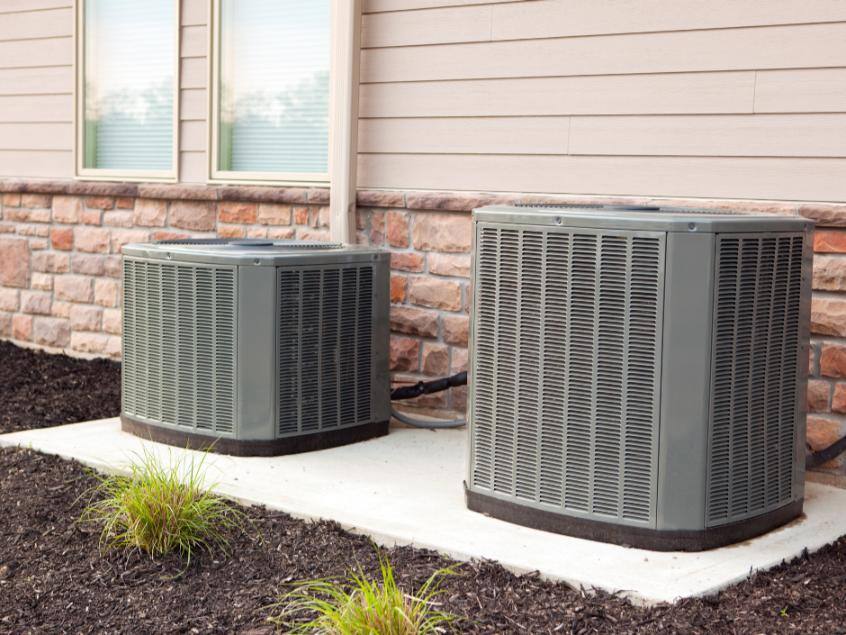Search for topics or resources
Enter your search below and hit enter or click the search icon.

Is your air conditioner still running? Has it been running non-stop? When your central air won’t stop running, it can be nerve-wracking. You may worry that something is broken, or that you need to spend money optimizing your HVAC system. Why exactly do air conditioners run without stopping?
Before South Central Services was an insulation contractor, our founders began in refrigeration and HVAC. The question of why your AC keeps running is about HVAC but is also fundamentally related to your insulation.
By the end of this article, you’ll understand how to diagnose what to do about your AC.
Don't have time to read right now? Check out everything you need to know at a glance.
When you have an HVAC issue, it makes sense that the key issue would be the HVAC. In reality, the first question you should be asking is about your insulation.
Insulation supports HVAC. A home without insulation can be conditioned by an HVAC system, but the required BTUs will be quite high. As the insulation in a home improves, the necessary BTUs to condition the home will decrease.
So, when your AC runs without stopping, the first questions to ask are as follows:
 You may have blown-in insulation on your attic floor or fiberglass batts in your basement ceiling. Are those insulations providing their maximum insulating value? If not, you need new insulation.
You may have blown-in insulation on your attic floor or fiberglass batts in your basement ceiling. Are those insulations providing their maximum insulating value? If not, you need new insulation.
Even if your current insulation is performing at its maximum capacity, you might still need new insulation. Blown-in and batt insulations only combat conductive heat transfer. Heat can still travel through hot air via convection and radiation. By upgrading to premium insulation with an air-sealing capability, you can stop all forms of heat transfer.
Premium insulation will lower the necessary BTUs of your HVAC system better than budget insulation like fiberglass batts.
If you have premium insulation operating at its maximum capacity, the next question to ask is about the recent weather conditions. Even the best systems will work really hard in the face of high temperatures.

Pennsylvania summers tend to have long stretches of temperatures over 94 degrees Fahrenheit. The hotter it is outside, the harder your HVAC has to work. There’s simply a greater difference between the inside and outside temperatures, forcing the AC to run longer.
It is not abnormal for your system to run all day when temperatures are so hot.
When you don’t look at the root cause of the problem, you instead wonder about your air conditioner. Is it broken? Is it going to break? Is it working that hard because it isn’t big enough? Can the system not provide enough BTUs to cool your house without running all day long?
It can be tempting to get a new and bigger air conditioner. There are several problems with this solution.
Insulation in your walls, ceiling, basements, and attic are the largest contributing factors when it comes to HVAC sizing. If your system seems undersized but your insulation is inadequate, you may be able to fix the issue by upgrading your insulation. If you resize your system based on the BTUs of a poorly insulated home and later insulate your home, you’ll have to resize the system again. It is better to start with air-sealing in the thermal envelope to support your HVAC before investing in new systems.
From an HVAC standpoint, sizing up your AC will also not solve your problem. The main reason why a larger capacity air conditioner likely won’t fix things is due to ductwork. The amount of cool air your AC can generate and circulate depends on the size of your ductwork. More BTUs means a greater need for airflow in the duct. In most cases, existing ductwork is not large enough to distribute the appropriate amount of air. Because of the ductwork restrictions, the unit will run at a lesser capacity than advertised.
If you size up a central air system, you most likely will need to also change all your ductwork. The delivery system has to be upgraded, too. However, we usually don’t recommend sizing up an HVAC system.
In fact, when you go in order and start with insulation upgrades first, homes usually downsize their HVAC systems. Insulation can make such a significant difference in necessary BTUs that the old system offers more performance than you need.
When it is hot outside, air conditioners are more likely to run non-stop. If excessive heat isn’t a factor, your insulation is the first thing to change. If your AC struggles to keep up with cooling your home, the best thing you can do is reduce the necessary BTUs.
An airtight seal and premium insulation will reduce the BTUs needed to condition a home, which supports your air conditioner and other parts of your HVAC system.
Now that you understand why your AC keeps running, your next step is to:
Disclaimer: While we strive to publish information accurate to building science, local building codes and standards supersede our recommendations.
Kilian has co-owned and operated South Central Services for 8 years. He is passionate about community involvement. In his spare time, he enjoys being with his family, playing ice hockey, and going fishing with friends.
Topics: